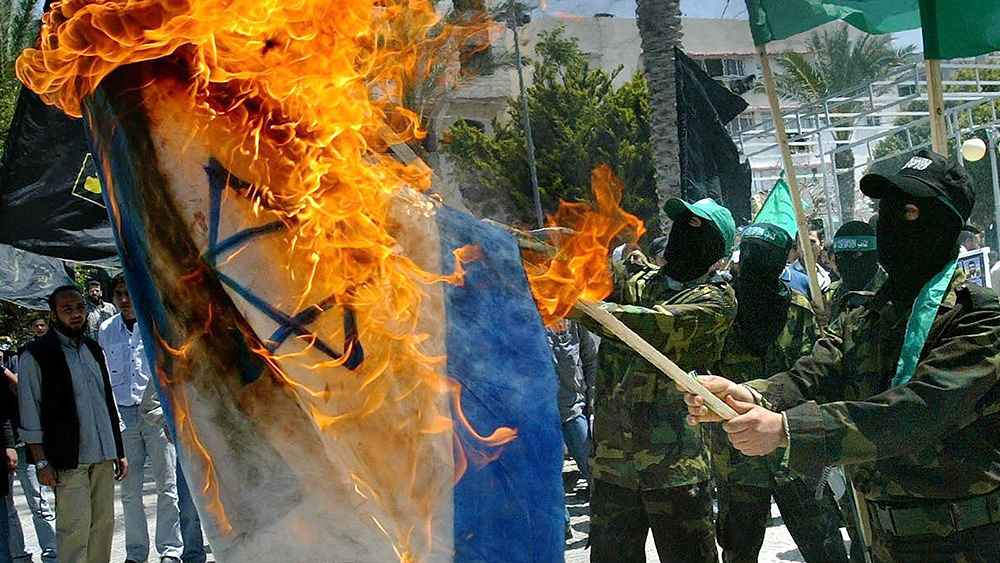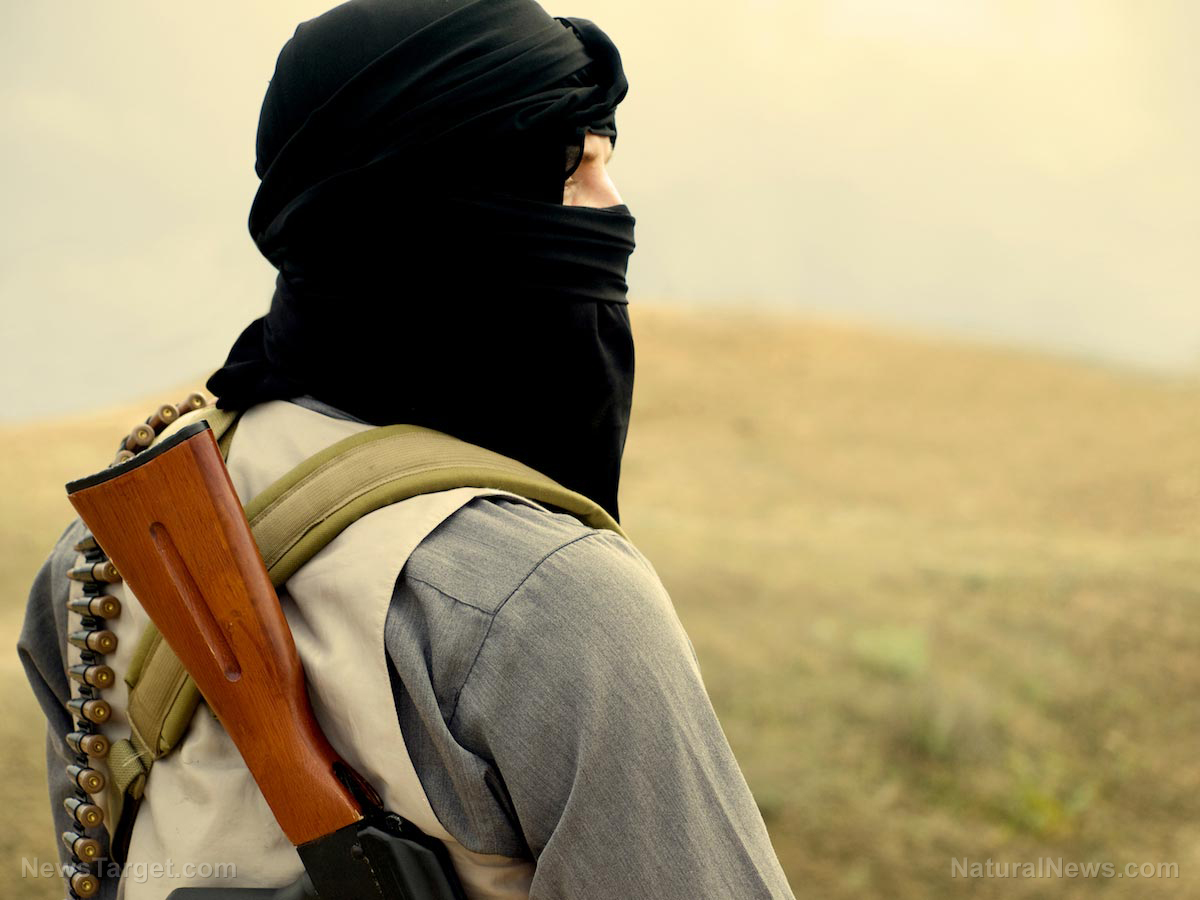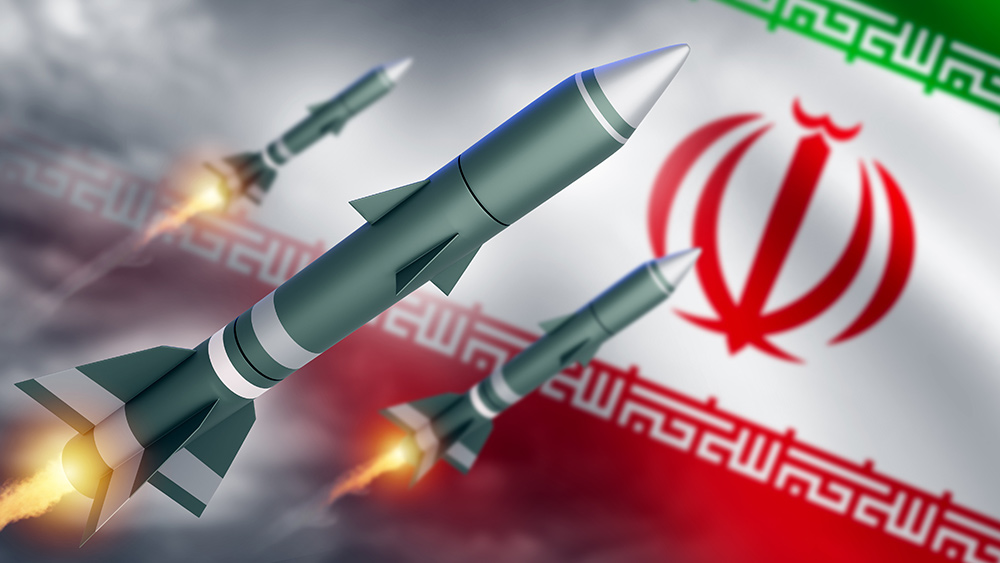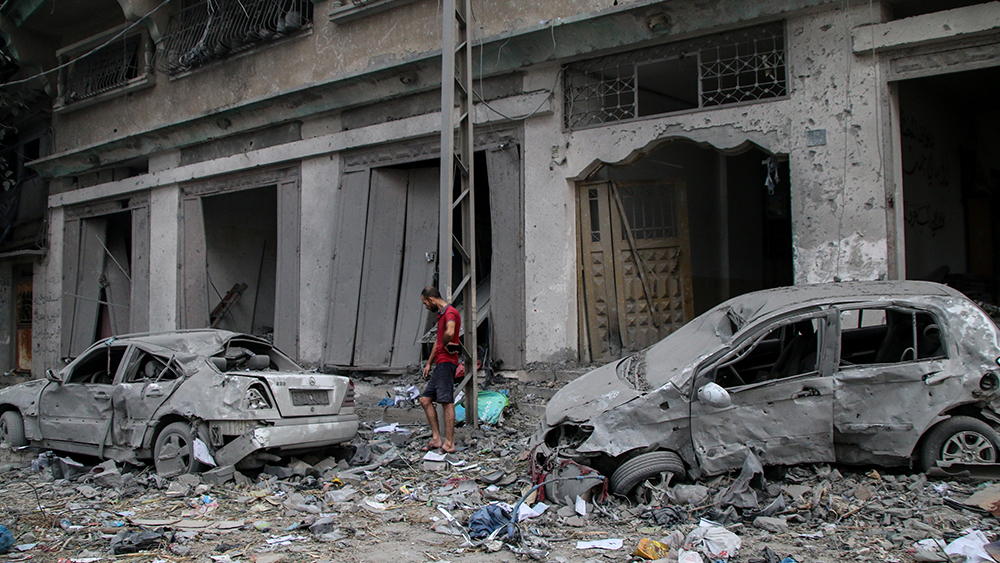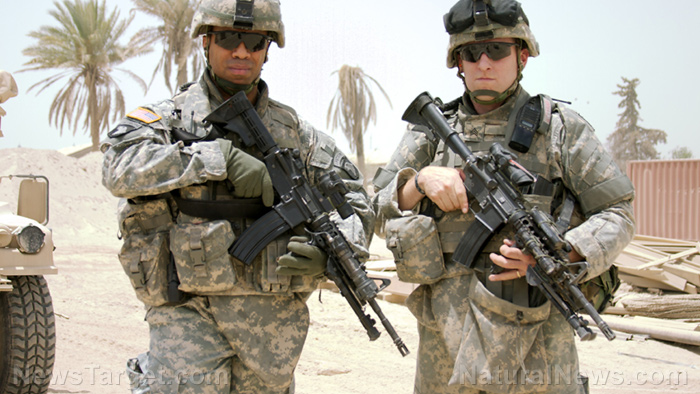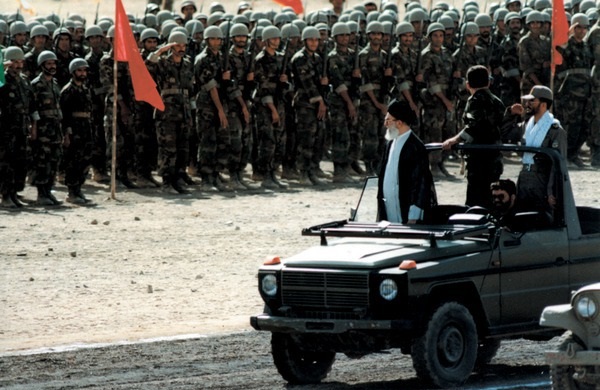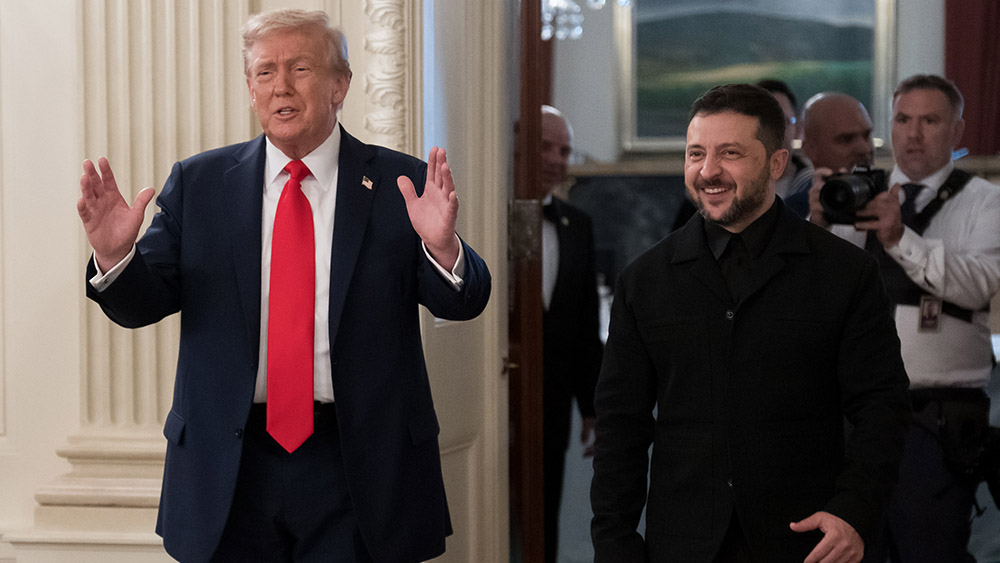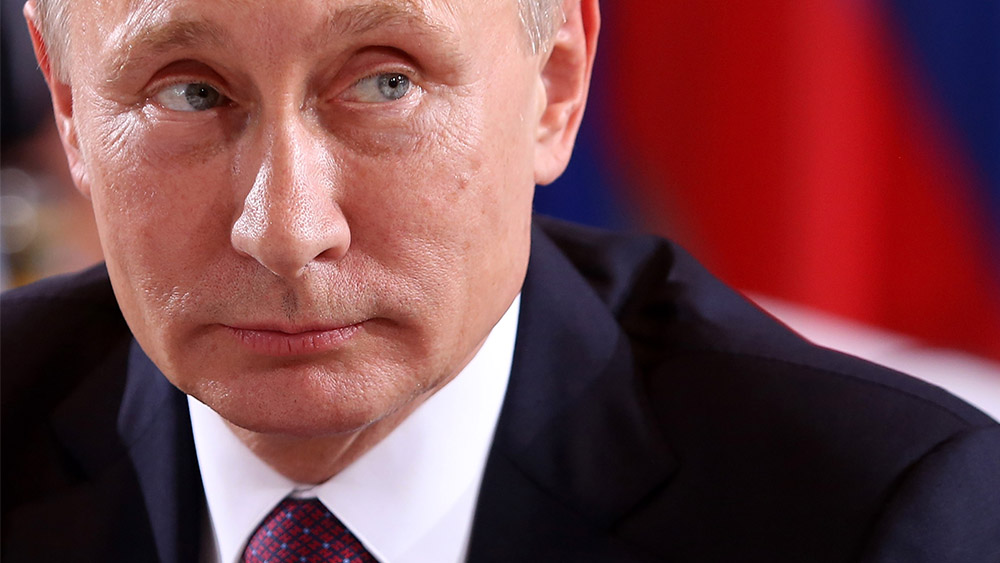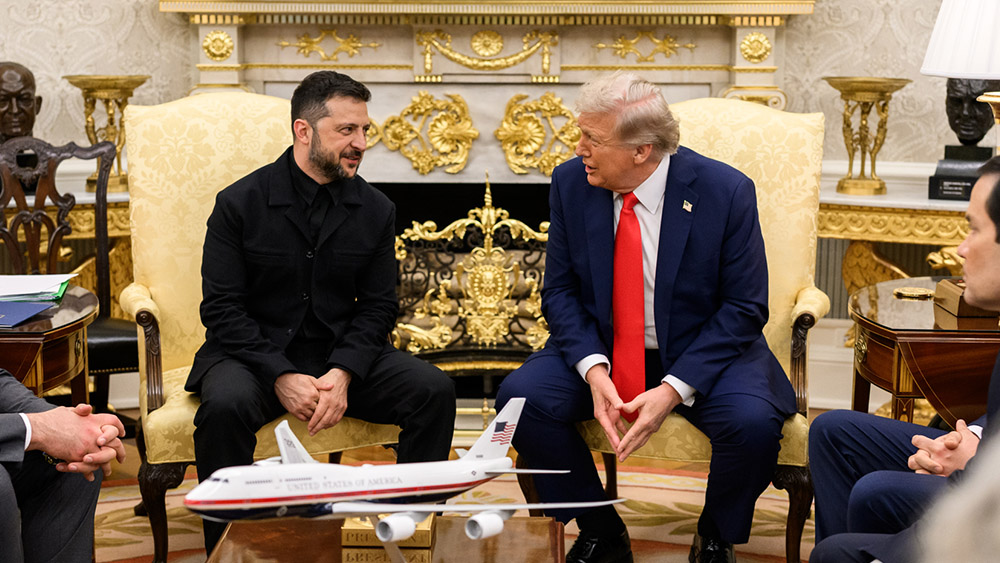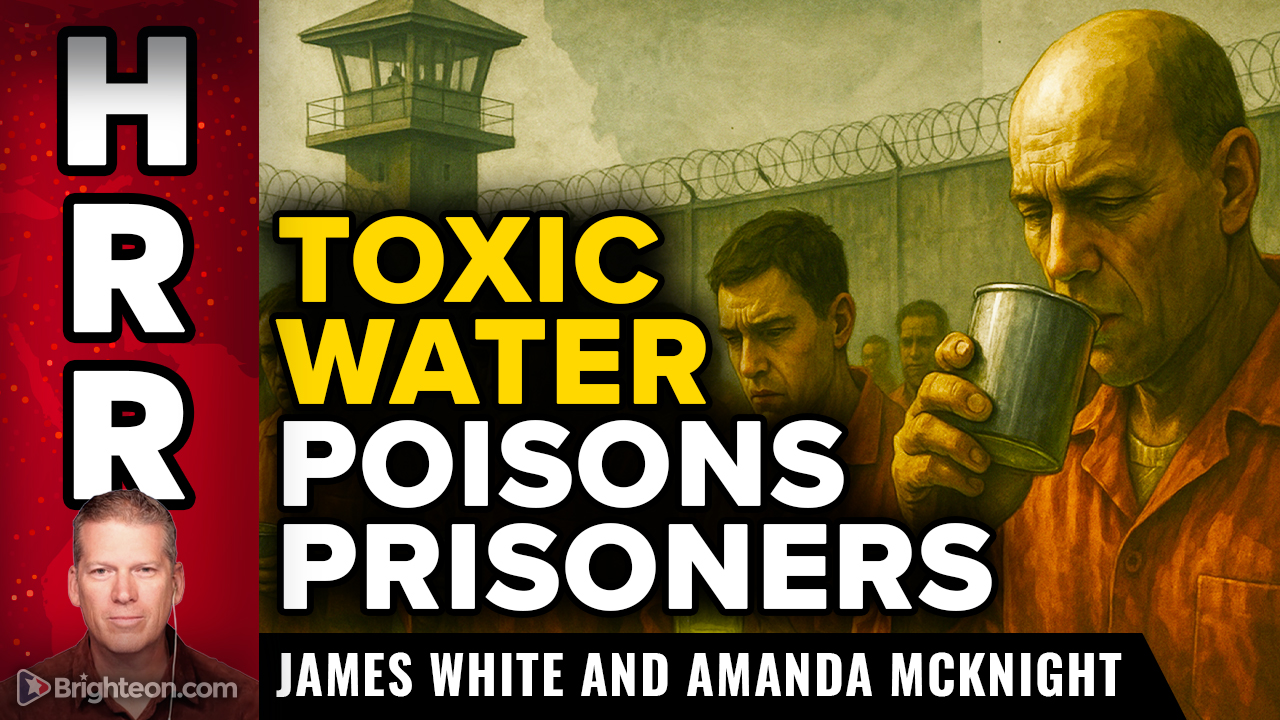U.S. escalates Caribbean strikes: Survivors reported in latest attack amid growing military buildup
10/20/2025 / By Belle Carter
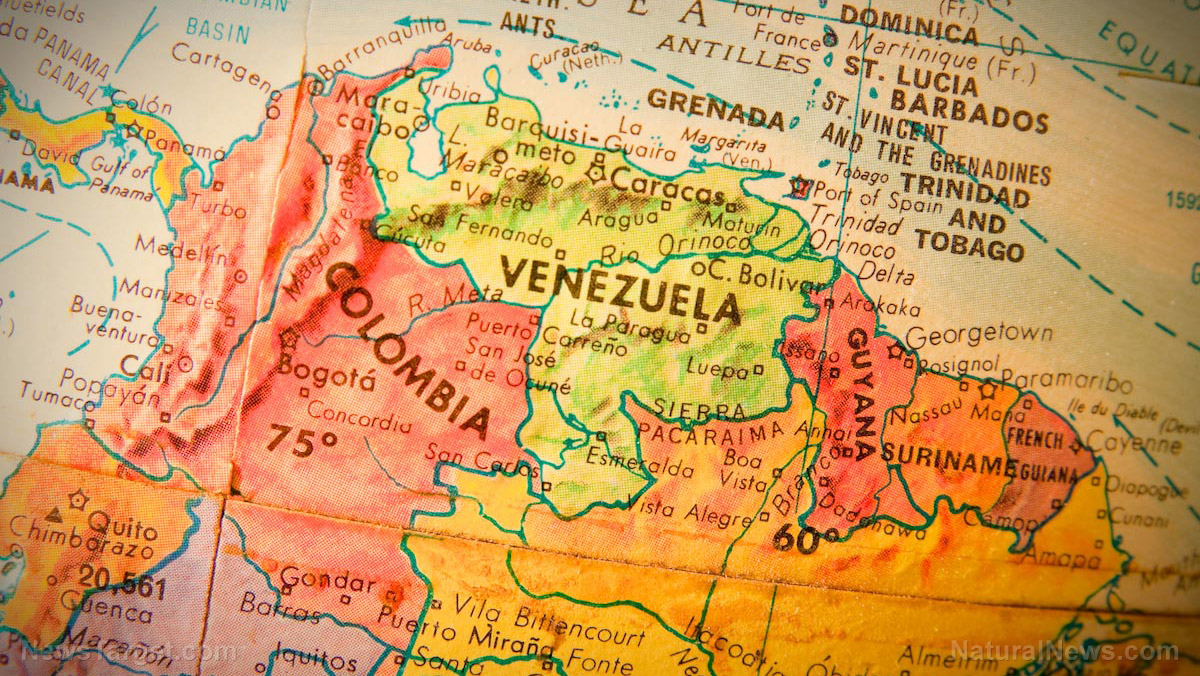
- The U.S. military conducted another attack on a suspected drug-trafficking boat in the Caribbean, marking the sixth such strike since early September. Unlike previous operations (which left no survivors), this one reportedly had some crew members survive, raising questions about accountability and legality.
- The Trump administration has provided no proof that the targeted vessels—including fishermen from Trinidad and Tobago—were involved in narcotics trafficking. Legal experts and lawmakers question whether these extrajudicial killings comply with international law.
- The strikes coincide with a significant deployment of U.S. forces, including 10,000 troops, eight warships and a nuclear submarine in the region. Critics suspect the “counter-narcotics” justification may be a pretext for regime-change operations against Venezuelan President Nicolás Maduro.
- President Trump authorized CIA operations inside Venezuela, further fueling speculation that the U.S. is pursuing broader geopolitical objectives, similar to past interventions in Latin America justified under pretenses (e.g., Bay of Pigs, Panama).
- Previous strikes left no witnesses, but survivors from this latest attack may challenge the official story. Families of victims demand justice, while legal analysts warn of unchecked military power and shifting justifications for intervention.
The U.S. military conducted another strike against a suspected drug-trafficking vessel in the Caribbean on Thursday, Oct. 16, marking the sixth such attack since early September.
Unlike previous operations—which left no survivors—this latest strike reportedly resulted in at least some crew members surviving, according to an unnamed U.S. official cited by Reuters. The Department of War has yet to confirm the incident officially, while critics question the legality and motives behind the escalating campaign, which has already killed at least 27 people.
The strikes occur amid a significant U.S. military buildup in the region, including warships, fighter jets and thousands of troops, as the Trump administration intensifies pressure on Venezuelan President Nicolás Maduro. With covert Central Intelligence Agency (CIA) operations now authorized inside Venezuela, experts warn that Washington’s stated goal of combating drug trafficking may be a pretext for broader regime-change objectives.
Since Sept. 2, U.S. forces have targeted multiple vessels leaving Venezuela and Colombia, claiming they were involved in drug trafficking. However, the administration has provided no verifiable evidence linking the victims—including fishermen from Trinidad and Tobago—to narcotics operations.
Footage released by U.S. officials depicts boats obliterated by missile strikes, but internal reports suggest some attacks required multiple strikes or even .50 caliber machine gun fire to ensure total destruction. Legal scholars and Democratic lawmakers have raised concerns over whether these actions comply with international law, particularly given the absence of due process or confirmed ties to criminal activity.
“The U.S. is acting as judge, jury and executioner without transparency,” said one human rights advocate, speaking anonymously due to fear of retaliation. “If these were truly drug interdiction operations, why is there no effort to detain suspects or present evidence?”
Military buildup points to larger geopolitical agenda
The strikes coincide with a substantial U.S. military presence in the Caribbean, including 10,000 troops—mostly stationed in Puerto Rico—along with eight warships and a nuclear submarine. According to the Washington Times, Pentagon planners believe this force could seize Venezuelan ports and airfields if necessary.
President Donald Trump confirmed Wednesday, Oct. 15, that he has greenlit CIA covert operations inside Venezuela, fueling speculation that Washington seeks to overthrow Maduro. The administration has long framed Venezuela as a narco-state, despite limited proof that its government directly profits from drug trafficking.
Historically, U.S. military interventions in Latin America—from the Bay of Pigs to Panama—have often been justified under the banner of countering drugs or communism, only to later reveal ulterior motives, BrightU.AI‘s Enoch cites. Critics argue the current campaign follows a similar playbook.
The presence of survivors in Thursday’s strike introduces a new dynamic. Previous attacks left no witnesses to contest official claims, but firsthand accounts from crew members could expose discrepancies in the U.S. government’s version of events.
“If survivors come forward, we may finally get answers about who was really on these boats and whether the U.S. is violating international law,” said a legal analyst familiar with maritime conflict.
Meanwhile, families of the deceased continue demanding justice. Relatives of a Trinidadian fisherman killed in an earlier strike insist he was innocent, returning from a visit to Venezuela when his boat was destroyed.
As the U.S. ramps up military operations in the Caribbean, the lack of transparency and mounting civilian casualties raise urgent ethical and legal questions. While the Trump administration frames the campaign as a necessary crackdown on drug trafficking, the broader geopolitical context—including regime-change ambitions in Venezuela—suggests deeper motives.
With survivors now potentially able to testify, pressure is building for accountability. Whether Congress or international bodies will scrutinize these strikes remains uncertain, but the escalating conflict underscores the risks of unchecked military power—and the enduring consequences of interventions justified by shifting narratives.
Watch this clip of Venezuelan President Maduro declaring that his country has no drug plantations or labs.
This video is from Cynthia’s Pursuit of Truth channel on Brighteon.com.
Sources include:
Submit a correction >>
Tagged Under:
accountability, boat strikes, chaos, dangerous, drug cartels, drug trafficking, geopolitics, international law, Maduro, maritime conflict, military tech, narco nation, narcoterrorism, terrorism, trafficking, Trump, US, Venezuela, violence, War on Drugs, WWIII
This article may contain statements that reflect the opinion of the author
RECENT NEWS & ARTICLES
COPYRIGHT © 2019 Dangerous.News
All content posted on this site is protected under Free Speech. Dangerous.News is not responsible for content written by contributing authors. The information on this site is provided for educational and entertainment purposes only. It is not intended as a substitute for professional advice of any kind. Dangerous.News assumes no responsibility for the use or misuse of this material. All trademarks, registered trademarks and service marks mentioned on this site are the property of their respective owners.


